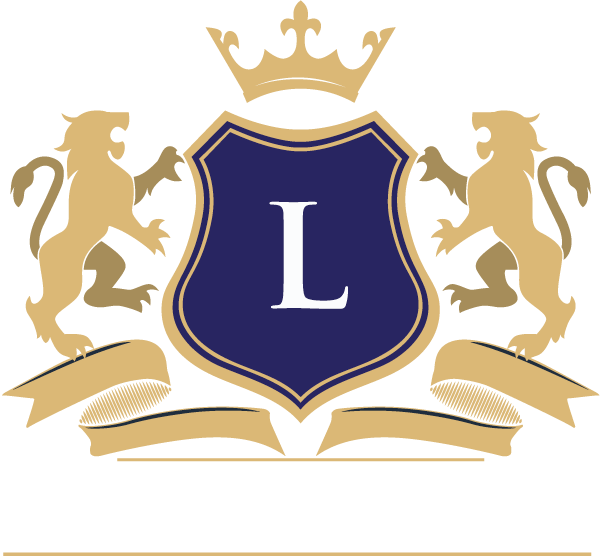In the competitive and ever-evolving world of business, education stands as a cornerstone for individual and collective advancement. The choice to pursue a Master of Business Administration (MBA) is more than just an academic decision—it’s a commitment to personal and professional metamorphosis. This esteemed degree promises not just knowledge but a comprehensive understanding of business intricacies, thereby paving the way for enhanced career opportunities and fostering a spirit of entrepreneurship. However, as significant as the decision to pursue an MBA is, an equally crucial choice looms large: the selection of the right MBA programme.
The graph below illustrates the estimated median starting salary for MBA graduates in 2023. This data stems from the Corporate Recruiters Survey 2023, an annual study conducted by the Graduate Managament Admission Council. This survey garners insights from global employers who actively recruit and hire MBA and other business master’s degree holders from business schools worldwide.
Recognition of Prior Learning (RPL): A Boon for Experienced Professionals
In the realm of advanced education, the Recognition of Prior Learning (RPL) stands out as an innovative approach, particularly in the context of MBA programmes. RPL is a process which allows professionals to receive formal recognition for the knowledge and skills they have acquired through work experience, training, self-taught endeavours, and life experiences. In essence, it acknowledges that meaningful learning doesn’t solely occur within the walls of educational institutions.
For busy professionals considering an MBA, the implications of RPL are tremendous. Firstly, it offers an opportunity to fast-track their degree. By receiving credit for what they already know and have practically experienced, professionals can often reduce the duration of their MBA course. This not only means a quicker path to graduation but also a significant reduction in associated costs and time investments. Furthermore, RPL inherently values the richness of real-world experience. It appreciates that professionals bring a wealth of knowledge to the table, gleaned from years of navigating the business landscape. This recognition can be empowering for professionals, affirming the worth of their diverse experiences in the world of formal education.
Tailored Learning:
The metamorphosis of the global business environment is vividly mirrored in the progressive evolution of MBA programmes. Gone are the days when these programmes were tethered only to conventional subjects; today’s MBA courses encompass a diverse range of specialisations, including emerging fields like Educational Leadership and Health Management. Aspiring entrepreneurs can navigate the intricate pathways of startups, gaining a comprehensive grasp of the challenges and intricacies inherent to business innovation. Meanwhile, those captivated by international commerce have courses tailored for them, delving into the minutiae of cross-border trade, embracing cultural distinctions, and understanding the pulsating dynamics of global markets.
Networking Horizons:
While the core academic rigour and structured learning modules of an MBA programme undoubtedly play a pivotal role in shaping a candidate’s business acumen, the full impact and essence of this venerated degree reaches far beyond traditional classroom settings and printed syllabi. Rather than merely serving as a conduit for theoretical insights, an MBA acts as a gateway, ushering its aspirants into the intricate labyrinth of the global business realm. It provides an immersive experience, often simulating real-world business scenarios, pushing students to apply learned concepts in dynamic settings, thereby bridging the gap between theory and practice.
Yet, perhaps one of the most invaluable facets of the MBA journey is the access it grants to a vast, diverse, and influential network. This isn’t just about making acquaintances but about forging deep-seated professional relationships. The camaraderie developed with classmates, the mentorship from seasoned industry leaders, the insights gleaned from guest lecturers, and the bonds formed during collaborative projects all contribute to creating an intricate web of connections. This network becomes an indispensable asset, guiding graduates throughout their careers. Whether it’s seeking counsel on pivotal decisions, tapping into new industry trends, or exploring collaborative business opportunities, this robust professional network, cultivated during the MBA tenure, remains a lifelong asset, ensuring that the legacy of the degree extends far beyond the confines of campus life.
Locational Benefits:
In today’s ever-evolving educational landscape, MBAs have adapted to cater to the diverse needs and aspirations of prospective students. One of the most significant advancements in this sphere has been the emergence of online MBA programmes alongside traditional on-campus offerings. Online MBAs provide unparalleled flexibility, allowing students to learn at their own pace and from any location. This format is especially beneficial for professionals unwilling or unable to take a hiatus from their careers, enabling them to balance their work commitments while simultaneously furthering their education. The digital format also taps into the global nature of business, often bringing together a cohort of students from various corners of the world, thus enriching discussions with a myriad of cultural and industry perspectives.
On the other hand, on-campus MBAs offer a more traditional, immersive experience. There’s an undeniable value in face-to-face interactions, be it during intense classroom debates, group projects, or informal networking sessions. Being physically present on a campus facilitates spontaneous interactions, fosters deeper relationships, and often allows for a more holistic involvement in extracurricular activities, from leadership seminars to networking events. Furthermore, the on-campus environment provides a structured learning experience, which some students prefer, believing it offers a more disciplined approach to education. Ultimately, the choice between online and on-campus boils down to individual preferences, learning styles, and career aspirations. Both formats have their unique merits, ensuring that there’s an MBA pathway tailored to fit every aspirant’s vision.
Financial Considerations:
Embarking on an MBA journey, while immensely rewarding, undoubtedly comes with substantial financial implications. The immediate expenses, from tuition fees to ancillary costs such as course materials and technology requirements, can be daunting for many aspirants. Adding to this financial burden are indirect costs like potential lost earnings, especially if one chooses to study full-time. Thus, potential MBA candidates often find themselves weighing the immediate financial strains against the long-term benefits of the degree, making the decision-making process even more intricate.
Recognising these financial challenges, several campuses are now offering flexible payment plans to make the MBA journey more accessible. Such initiatives demonstrate an institution’s commitment to education and its understanding of the diverse economic backgrounds of its students. By allowing students to spread out their tuition fees over an extended period or offering monthly instalments, these campuses reduce the upfront financial burden. Furthermore, some institutions also provide options like deferred payments, where students can begin their repayments after graduation or once they secure a job. These flexible payment structures not only alleviate immediate monetary concerns but also act as an incentive, attracting a broader range of talented individuals who might otherwise be deterred by the costs. Ultimately, by ensuring financial accessibility, campuses underscore the value they place on diversity, inclusivity, and genuine merit.
Holistic Development:
On the face of it, MBA programmes appear to be the gateway to advanced business acumen, offering students the tools and frameworks to understand and navigate the complex world of business. Prospective students are drawn in by the prospect of expanding their professional networks, diving into case studies that mimic real-world scenarios, and enhancing their chances at lucrative and fulfilling job roles post-graduation. This surface-level appeal is indeed a significant aspect of what makes an MBA attractive to many.
However, digging deeper, there’s an intrinsic value that transcends the obvious benefits. Premier institutions, in their curriculum and ethos, are invested in cultivating more than just business-savvy graduates. Their commitment lies in shaping individuals who are not only adept at business strategies but are also equipped with interpersonal skills, emotional intelligence, and ethical grounding. This holistic approach ensures that graduates can lead with empathy, operate with integrity, and contribute positively to society. Such institutions understand that in today’s interconnected world, a well-rounded individual, capable of both critical thinking and compassionate leadership, is the need of the hour.
Conclusion:
The journey into the world of MBA programmes can often feel akin to navigating a vast and intricate maze. The sheer breadth of offerings is staggering, with illustrious institutions spanning from the Ivy-clad halls of the U.S. to the esteemed business corridors of Europe and the emerging academic powerhouses in Asia. Each of these revered schools offers its unique flavour of MBA, be it the intensive two-year programmes that promise deep immersion or the specialised curriculums focusing on niche areas. To navigate this academic expanse, potential students must couple introspection with meticulous research. By understanding their own career aspirations and personal constraints, and then juxtaposing these with the offerings of various programmes, they can chart a course that not only enhances their knowledge and skills but also propels them towards their envisioned future.







Leave a Reply
You must be logged in to post a comment.